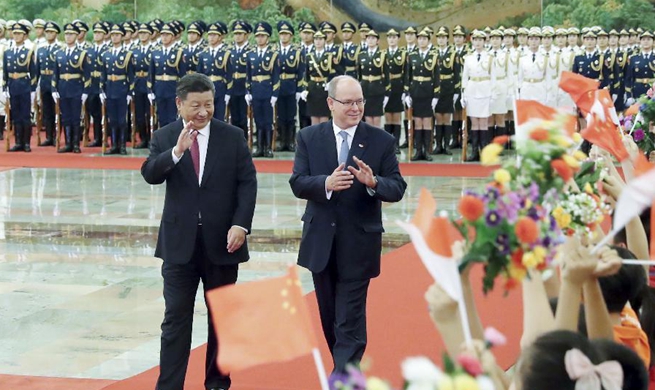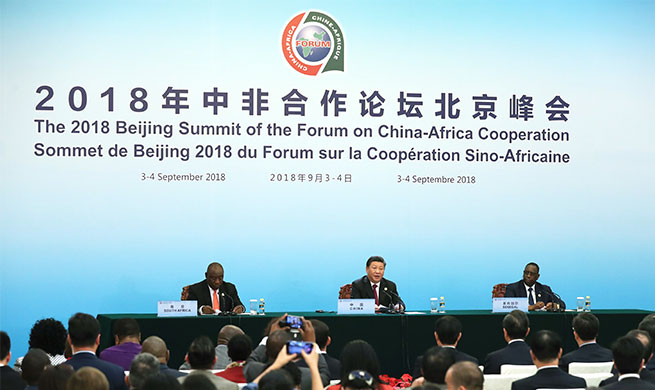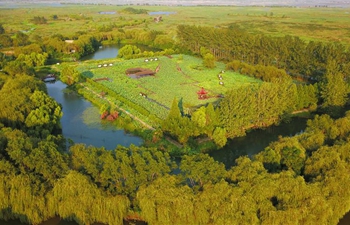ADDIS ABABA, Sept. 7 (Xinhua) -- Experts and policymakers on Friday urged for strong political will from the continent's leaders to address Africa's water and energy challenges.
They made the joint call as representatives of various United Nations (UN) agencies gathered in Ethiopia's capital Addis Ababa to discuss mainstreaming and implementing the water-energy nexus for sustainable development in Africa.
The three-day meeting that ended on Friday has brought together representatives of the UN Office for Sustainable Development (UNOSD), the UN Economic Commission for Africa (ECA), UN Environment, and the UN Department for Economic and Social Affairs (UN DESA).
Experts and policymakers, as part of their concluding outcome of the meeting, underlined the need to develop innovative financing mechanisms to address water and energy problems in Africa.
"Governments need to incorporate supportive policies for private businesses and self-initiated local communities for water loans and innovative financing to alleviate problems on the ground," the final outcome statement read.
Misalignment of national policies with the sustainable development goals, lack of regional data collection, sharing and analysis are also stressed as the major reasons the continent was failing to holistically address its water and energy deficits.
They further emphasized that regional and national policy and legislation should be harmonized and coordinated in the implementation of water and energy nexus.
"It is recommended that countries and regional blocks start taking action in harmonizing policy and legislations for smooth process of water and energy implementation in the continent," they stressed.
Linus Mofor, Senior Environmental Affairs Officer at the ECA, said African countries are already experiencing catastrophic climate change and variability impacts in inter-related ways across many sectors - including water, energy and agriculture.
Mofor further stressed the need to set up integrated approaches in responding to the increasing energy and water demand to enhance livelihoods and sustain economic growth and address the additional pressures on natural resources due to urbanization and population growth in a continent affected by the changing climate.
The importance of developing enforcement mechanism at regional and national level was also emphasized as a positive imputes for Africa's water and energy sector development.
"Continuous and targeted capacity building is needed to mainstream and implement the nexus approach for effective water and energy development in the continent," the final communique said.
Samba Thiam, Head of the UN Environment Liaison Office to the African Union (AU) Commission, also said that with the increasing demands for water and energy on the continent, it is important for experts to understand their interlinkages as well as potential water-energy nexus options that can effectively contribute to meeting Africa's water and energy demands.
"An integrated approach to the water-energy nexus can increase energy efficiency, decrease water pollution, reduce costs of energy and water delivery, increase access to services, and reduce greenhouse gas emissions," said Thiam.
Participants also said the water and energy nexus needs to be viewed as an entry point to trigger the global Sustainable Development Goals (SDGs) achievement.
The importance of mainstreaming the SDGs and targets into national plans and develop monitoring mechanism was also stressed as an important factor.
According to the UNECA, some African countries have started mainstreaming processes while some have begun to implement the nexus approach.













